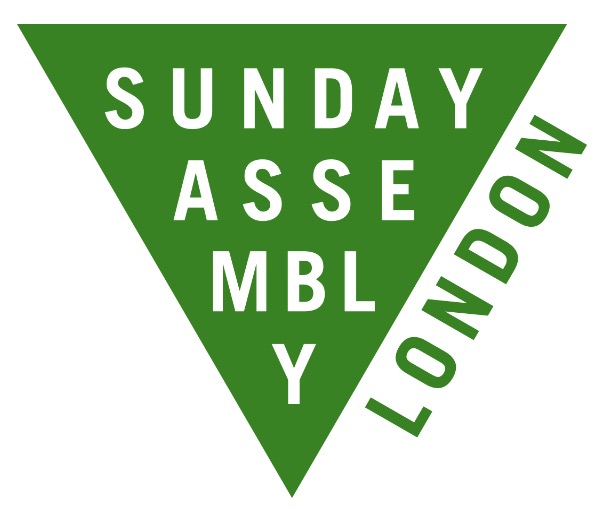Last Sunday in the Conway Hall we had the first ever Sunday Assembly London Vision Day – it was exciting. We outlined the vision for where we wanted to go, and launched our first regular giving scheme. That way anyone from the community could support us financially so that we could make it a reality.
Why did we do this? Well, as always we start from first principles. Everything that we have ever done in Sunday Assembly is down to one thing: we are incredibly grateful to be alive humans. The Sunday Assembly is a celebration of life, our mission is to help everyone live life as fully as possible and we are obsessed with that goal.
We are obsessed with trying to help you – yes, YOU! – to live your life as fully as possible.
But not just you. No it does not even just mean everyone who is in the room at a Sunday Assembly gathering. We want to build that joyful world where everyone, young or old, poor or rich, north or south, up or down lives life as fully as possible.
It is a bold, daring, reckless, lunatic mission that started here in London. That is the vision that we presented at Sunday Assembly London last Sunday at our Vision Day. It’s a big vision, which needs a long blogpost because we really want to lay it out for you in one place. We really want you to give us the 10 minutes it will take to read.
So the blogpost is long, it is important, but, don’t worry, we’ll keep it lively with some well chosen gifs:

See you’re in safe hands.
Our big bold vision for London seems nuts but what makes us think that we can achieve it is looking at what we have achieved so far.
Sunday Assembly London, and the entire movement, started with two people having a conversation in a car, when Pippa and I realised we both wanted to do something a bit like church, but just without the religious bit.
_%E2%80%93_Frontansicht,_7._M%C3%A4rz_2011,_D%C3%BCsseldorf.jpg)
In London we started with 180 people meeting. By the end of the year we had about 350 people meeting twice a month here.
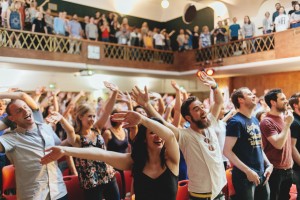
But that’s become too small and we think we will shortly have to have two meetings one in the morning, and one in the afternoon (bring your hangovers to Sunday Assembly!):
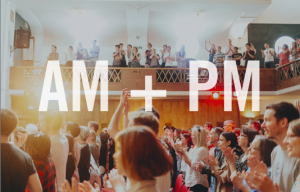
If we are able to carry on we could easily imagine doing that once a week.
This was only able to happen because more and more people got involved. We want you to get involved, get inspired and get behind this vision.
This growth is seen all over the community. Indeed it is totally driven by an amazing community of excellent people all pulling together to create a new future for themselves and the people round them.
In October 2013 Pippa met with a small group of people to give each other peer-to-peer support. This transformed in January 2013 into the first RESOLVE group where a small group of folk helped each other with their new year’s resolutions.
These two excellent people below turned them into Live Better Groups which have had over almost 200 people through them.

The impact of this activity is profound. Our social impact survey (constructed with the help of Steve Coles at Intentionality, Josh Bullock, PhD Kingston Universtiy, Michael Plant, PhD Student Oxford University) have shown:

We have seen similar increase in people with report mental health problems of:

The work was great but we got the feedback that people wanted something more. So we have now turned designed and run the first prototype of a Life Course. 8 sessions over 8 weeks that combines the evidence based work from Martin Seligman’s P.E.R.M.A. model of positive psychology with the excellent meeting structure of the Alpha Course. We’re just processing the data from the first run but the reports back have been phenomenal.
The question is….
Why Are We Doing This?
Because the problems we are facing are VERY BLOODY REAL. This is where I get serious. Or, rather, I show this graph which shows how very bloody serious the situation is.
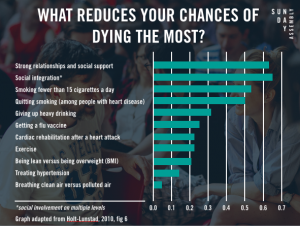
1 in 10 people in the UK have no friends or family, meaning we have 10% of the population with zero social support. Helping them would be transformative personally but in our increasingly atomised, individualistic, isolated culture it would be transformative at a societal level.
What do we want to do in 2016?
Well, we’ve had so much feedback from so many people and these are just some of the ideas that have come to us….
- We want to work with ex-offenders and in schools.
- We want to let the socially isolated know there is a space for them.
- We want to visit those who are too ill to leave their houses..
- We want to tell an alternative story about the world that might make extremist radicalisation just that bit harder.
- We want to be the best in the world at creating joyful meaningful lives
- We want to provide hundreds of activities and small groups.
- We want our community to vibrate with excitement.
- We want to give everyone their right to community.
Why are we confident that we can make a difference?
Well, it’s not just because we’ve done so well so far. It’s also because we are basing our work on an excellent model. The congregational community – pioneered by mosques, synagogues, churches, temples and so many more – is one of the most effective ways of building communities that change people, transform towns and spawn movement.
Learning from religions has been effective in the past: In 1976 a guy called John Kabatt Zinn thought that using vipasana meditation could help the patients who were suffering from pain in his hospital. He was a doctor and an excellent buddhist practitioner who knew he couldn’t make them become buddhists so found another way to teach them. He:
- Made it secular – so it is not tied to a religion
- Made it inclusive – anyone of any belief could do it
- Measured its social impact – creating evidence base for it.
Thus he created mindfulness which you can find in the NHS, board rooms, your smart phones and a ton of other places.
We are now looking at congregations and want to do the same thing:
- Made it secular – so it is not tied to a religion
- Made it inclusive – anyone of any belief could do it
- Measured its social impact – creating evidence base for it.
- Add pop songs (because singing “Livin’ On A Prayer” is good for the soul).
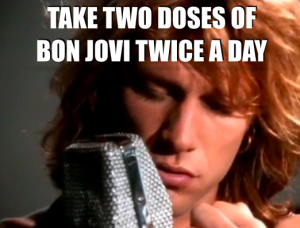
If you are part of Sunday Assembly, if you want to build Sunday Assembly London into all that it can be then you are part of this experiment. Part of our attempt to learn from religious communities to build a new world. Part of a movement that we, hope, will
These systems help to transform people’s lives, transform the communities around them and launch movements that can change the world.
The question is:
Do you want to be part of this adventure? Do you want to live in this vision?
We hope the answer is:
Yes I do want to be part of that. That sounds awesome.
That’s lucky because we need you.
The congregational community model is built around creating connections that unleash the human being’s inner desire to help. Taking people out of the fight or flight mode helps to promote kindness, altruism and compassion. All of these systems are build around human commitment to that ideal.
It is probably time to put this quote in:
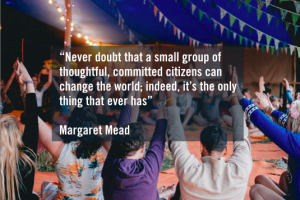
Do we want to be part of that group?
It’s a pretty great group (but that doesn’t mean we don’t like other groups, alright?).
What does that commitment look like?
1. We need you to commit to trying to live your life as fully as possible.
We will never achieve our goal unless you turn that from an interest to a commitment.
2. We need you to commit to giving your time and skills to Sunday Assembly.
Congregational communities are built around people helping people to live fulfilled lives. Sunday Assembly is no different.
3. We need you to commit to financially to supporting Sunday Assembly.
The success of the congregational community across the world is built on members of that community giving to the vision.
By achieving all three of these things we believe we will be able to profoundly change the world.
This is the first time in Sunday Assembly London that we have asked for regular financial support from you.
- We didn’t want people to think we were like those televangelists with big hair and bigger grins.

I didn’t realise that most vicars, imams and rabbis are just great people trying to help their community.
2) I didn’t understand how congregational communities worked.
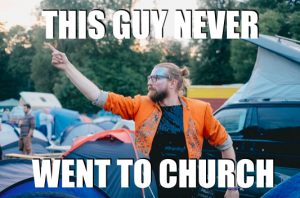
This is partly because I had never really gone to a fun congregation and understood that they rely 100% on donations from attendees.
3) In London we had the vision. Not the team.

We had a vision for London but no one to make it happen. We needed someone to be working full time on this but I was working full time on the International side of Sunday Assembly and Pippa was trying to juggle a successful comedy career with the demands of organising fortnightly Assemblies.
Basically we didn’t have a Ruth – the new, amazing, incredible, simply fantastic Sunday Assembly London Community Creator.

We have a vision, we have the team, we have the track record, we have the momentum. In order to make it happen we need funds.
But Where Will It Go?
£5K a month we could retain a full- time staff member, provide a space for rehearsals, interest groups, our courses and be confident about putting new programmes in place.
£10K and we could have larger spaces, more training, residential weekends, sustainable support for members of the community struggling with their mental health and liaison with local authorities about supporting those in need.
£20K we could move into transport assistance, a dedicated SA building, and an expanded outreach programme that includes prisons and schools.
(All of our spending will be public and transparent as we are an official charity and this is our charity number – 1162995).
So you want to give regularly: the question is how much?
Well, in congregational communities it works in different ways in different places. Jesus Christ (bearded, robed, Son of God etc) told the a widow that her mite (a Jerusalem penny) was worth more than the millions a rich man put in because she was very poor and it was all that she could afford.
Lovely lady. Lovely guy.
In churches today there are some that tithe, which means they give 10% of their gross income. That seems like A LOT but it does mean that churches can do a lot of things.
We want you to be involved in Sunday Assembly in a myriad of ways, doing a myriad of things, improving your life and the world of those around. So instead of thinking in percent, maybe think of time.
Time To Give
An average salary in London is £25k. So one of hour work is £12.50 after tax, it would change depending on your wages (that’s how sums work). Let’s have a look at how that would break down….
We want to have a Sunday Assembly every week. We want you to have access to hours of classes. We want you to be able to take part in loads of activities. We want to offer those same activities to people who are less well off than you.
Can you give one hour a week of your pay?
Maybe you think that because you’re not yet taking part in all of those activities then you shouldn’t give that much. Well, we are already putting on a Sunday Assembly every two weeks.
Can you give two hours a month of your pay?
Then again, you only go once a month for an hour of uplifting life-affirming magic but haven’t yet got into the community section, you haven’t yet seen had it change your life.
Can you give one hour a month of your pay?
Maybe, the place you’re at right now it means that Before we head off, I’d just to ask one more question….
What Does Your Bank Statement Say About You?
This was a question that Richard Spens asked me when we were working in a co-working office called Tent. He said, if you look at your bank account it is a good reflection of what is important to you in your life.
Rent = important.
Getting to work = likewise important.
Food so you can stay alive = bloody important.
Food so your children can stay alive = also bloody important.
If you were to look at your bank account you could see that you spend on those. The question is: how important is your life to you? How important is community to you? How important is helping others? How important is building a world where everyone lives life as fully as possible?
If these are important maybe it should be reflected your bank statement too.
Join Us
We have the vision, we have the ideas, we have the team, we have the experience, we have an awesome community of brilliant people making it. By investing in Sunday Assembly, by making it sustainable then we can keep on helping more people live life as fully as possible. Maybe you want to give a percentage of what you earn, maybe you want to give an hour a week, maybe an hour a month or maybe a mite.
Whatever you want to give, this link here will enable you to do just that.
Thank you very much for your generosity. With your commitment to your life, your commitment to serving the community and your commitment financially we will make our vision a reality.
Thanks so much for getting to the end of an amazingly long internet post. You are great.
Love,
Sanderson and the Sunday Assembly London Team
ps. As a reward for getting to the end of a long blogpost here’s a bonus panda gif.

